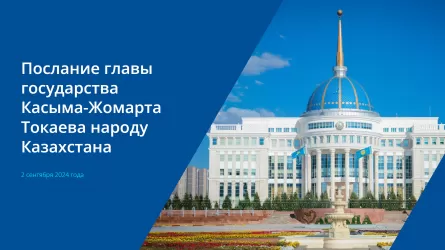The Astana Times – The Kazakh government and the National Bank have prepared an anti-crisis plan to mitigate the negative impact on the country’s economy stemming from the Russia-Ukraine conflict, reports the Kazakh prime minister’s press service.
A set of anti-crisis measures is aimed at supporting financial stability after the country’s national currency tenge lost its value and began to trade at around 500 tenge per U.S. dollar.
The action plan includes measures aimed at maintaining inflation control and stability in the foreign exchange market, supporting employment and the creation of new jobs, and developing entrepreneurship.
To ensure financial market stability and the attractiveness of tenge deposits, the government and the National Bank will implement the Tenge Deposit Protection Program, which provides for 10 percent accrual on household deposits at the expense of the budget.
In its statement on Monday, the National Bank said it will continue intervening in the foreign exchange market, if necessary, to dampen tenge volatility, similar to what it has done the past week. Volumes and frequency of such interventions will depend on the situation in the domestic currency market.
“At that, the flexible exchange rate of tenge will allow securing gold and currency assets, which are becoming more important in light of external risks. Current levels of gold and foreign currency assets allow covering 8.8 months of imports,” said the bank.
It also continues to monitor official statements of governments, central banks, and financial institutions and to assess the impact of the new anti-Russian sanctions on Kazakhstan’s financial system.
Russia is one of the key trading partners of Kazakhstan, and with the rouble plunging to its record low losing 30 percent of its value against the U.S. dollar, the weakening of the Kazakh tenge was just a matter of time. The Kazakhstan Stock Exchange (KASE) said on Tuesday afternoon that on average, the tenge to U.S. dollar rate was 495.00 tenge, up six percent just overnight.
On Feb. 26, the White House issued a joint statement of the leaders of the European Commission, France, Germany, Italy, the United Kingdom, Canada, and the United States on further restrictive economic measures against Russia. The measures included removing selected Russian banks from the SWIFT messaging system leaving them disconnected from the international financial system and harming their ability to operate globally.
“Second, we commit to imposing restrictive measures that will prevent the Russian Central Bank from deploying its international reserves in ways that undermine the impact of our sanctions,” said the statement published on the White House website.
The National Bank of Kazakhstan also said that S&P Global Ratings downgraded Russia’s long-term rating to non-investment grade (BB+) following the international sanctions.
“In the coming days, the Russian rouble exchange rate will be characterized by significant volatility and will be more exposed to market reactions and changes in risk sentiment, and will reflect fundamental factors to a lesser extent,” said Kazakhstan’s financial regulator.
Kazakhstan continues to weather the consequences of the ongoing situation in Ukraine. President Kassym-Jomart Tokayev convened the Security Council meeting on Saturday to discuss the escalating situation around Ukraine and measures to ensure the continued stable social and economic development of Kazakhstan.















